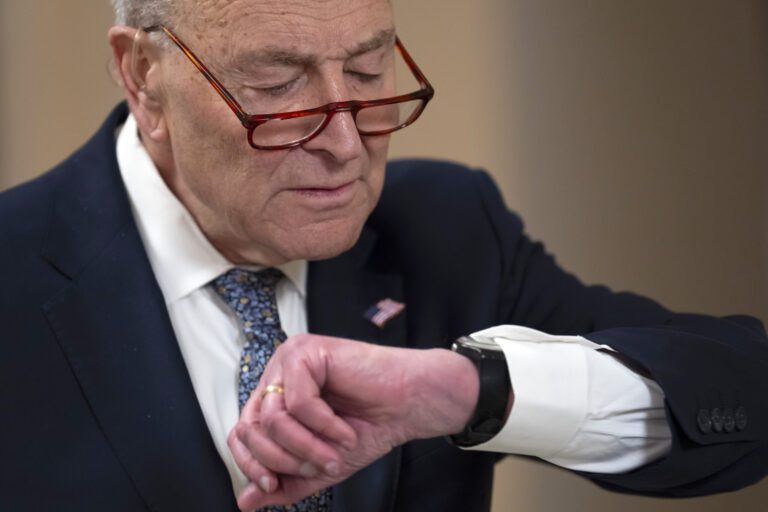Senate Struggles on Confirmation Process Amid Recess Appointment Debate
As senators head back to their home states this week, significant disagreements over the confirmation of President Trump’s nominees have surfaced. With Republican senators pushing for expanded use of recess appointments, the divide between parties has grown more apparent.
Overview of the Situation
Senator John Thune and Senator Chuck Schumer have encountered difficulties in reaching an agreement to expedite the confirmation of several nominees. While Republican senators argue for the president’s authority to implement recess appointments, Senate Democrats have effectively stalled the process.
Key Issues
-
Blockages in Confirmation: Senate Democrats have been meticulously delaying confirmations as part of a broader protest against the Trump administration. Even standard nominees for lower-tier positions have faced extensive delays due to the refusal of Democrats to agree to “unanimous consent” requests, which could speed things along.
- Schumer’s Leverage Play: Senator Schumer sought to leverage the situation by demanding the release of certain funds for public health and foreign aid. However, President Trump dismissed these demands and expressed his discontent through a post on Truth Social.
Trump’s Response
President Trump was vocal about the negotiations, stating:
“Senator Cryin’ Chuck Schumer is demanding over One Billion Dollars in order to approve a small number of our highly qualified nominees. This demand is egregious and unprecedented.”
He further urged Republicans not to accept any compromises, emphasizing the political pressures facing Schumer from within his own party.
The Impacts of Recess Appointment Authority
Prior to this standoff, some conservatives—including President Trump—had expressed that the president should be able to utilize his recess appointment powers while Congress is on break. Currently, there are approximately 130 nominees waiting for final confirmation in the Senate.
Senatorial Opinions
Senator Mike Lee remarked on the delays:
“We’ve continued to have delay after delay.”
He and other conservative senators proposed a resolution that would allow Trump’s recess appointments, but this suggestion was ultimately dismissed by Senator Thune.
- Concerns Among Republicans: Some Republican senators are wary of granting the president the power to make recess appointments. The appointments would remain until the end of the current Congress, which could extend to January 3, 2027.
Senator Thom Tillis criticized the notion:
“That’s bypassing one of the unique responsibilities of the U.S. Senate.”
Tillis has notably blocked key nominations, illustrating the tension within the party regarding the appointment process.
The Path Forward
With senators wrapping up their confirmation votes late Saturday night, they will recess for the rest of August, returning to session the day after Labor Day. The unresolved debate creates uncertainty around nominees’ confirmations and the balance of power within Congress.
- Implications for the Future: The ongoing stalemate places an emphasis on the need for compromise, not only for the sake of confirming nominees but for the functioning of the federal government as a whole.
Conclusion
The ongoing conflict between Senate Republican and Democratic leadership over the confirmation of Trump’s nominees reflects deeper partisan divisions. As both sides head into a long recess, it remains to be seen how they will address these challenges upon their return.
For insights on ongoing political development, visit sources like CNN Politics or Politico.
By examining the intricacies of this situation, it becomes clear that executive appointments are not only a matter of filling positions but also a reflection of the broader political landscape.


